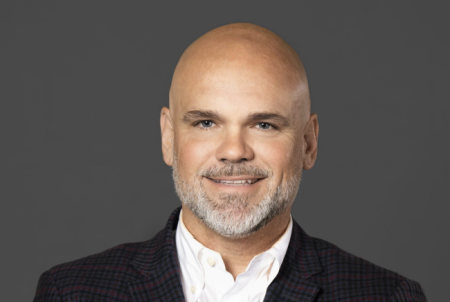Shilpa Ranganathan’s Return to Expedia Group as Chief Product Officer Signals Strategic Focus on Product Innovation and Customer-Centric Design
Shilpa Ranganathan’s appointment as the chief product officer at Expedia Group marks a significant development for the travel technology giant. Her return, after a 16-year tenure at Microsoft where she served as corporate vice president within the Windows senior leadership team, brings a wealth of experience in building consumer-focused products leveraging cutting-edge technology. Ranganathan’s previous role at Microsoft, leading product development for one of the most widely used operating systems globally, underscores her expertise in navigating complex technological landscapes and delivering user-centric solutions. This experience aligns perfectly with Expedia’s commitment to enhancing its travel platform and providing seamless experiences for its customers. Her prior affiliation with Expedia, from 2004 to 2008 as a director in product management, provides her with valuable institutional knowledge and an understanding of the company’s culture and operations, facilitating a smoother transition and quicker impact in her new role. Ranganathan will oversee product and design teams, reporting directly to CEO Ariane Gorin, highlighting the strategic importance of product development in Expedia’s future trajectory. This direct reporting line also empowers Ranganathan to effectively advocate for product-focused initiatives and ensures her voice is heard at the highest levels of leadership.
Ranganathan’s appointment comes at a crucial juncture for Expedia, as the travel industry rebounds from the pandemic and faces increasing competition from emerging players and evolving consumer expectations. Her expertise in understanding customer needs and translating them into compelling product offerings will be essential in driving Expedia’s growth and maintaining its competitive edge. Her experience in driving innovation at Microsoft, a company renowned for its technological prowess, will also be invaluable in leveraging emerging technologies, such as artificial intelligence and machine learning, to enhance the user experience on Expedia’s platform. This can include personalized recommendations, streamlined booking processes, and proactive customer support. Ranganathan’s leadership is expected to spearhead Expedia’s efforts in creating innovative travel solutions that cater to the changing needs of travelers.
Expedia Group’s Leadership Restructuring: A Broader Perspective
Ranganathan’s appointment is part of a broader restructuring of Expedia’s leadership team, signaling a concerted effort to strengthen its technological capabilities and drive product innovation. The recent appointment of Ramana Thumu, former Fanatics executive, as chief technology officer further emphasizes this focus on technology as a key driver of Expedia’s future success. Thumu’s experience in building scalable and robust technology platforms will be crucial in supporting Expedia’s expanding global operations and ensuring a seamless experience for millions of users. The departure of CFO Julie Whalen adds another layer of change to this restructuring, creating an opportunity for new financial leadership to contribute to Expedia’s strategic direction. These leadership changes, taken together, suggest a deliberate effort by Expedia to position itself for long-term growth and adaptation in the rapidly evolving travel technology landscape.
Industry-Wide Leadership Shifts: A Sign of Dynamic Growth and Change in the Pacific Northwest Tech Sector
The leadership changes at Expedia are not isolated incidents but part of a larger trend of executive movements across the Pacific Northwest technology industry. This dynamic landscape reflects both the growth and maturation of the region as a tech hub and the increasing demand for experienced leaders who can navigate complex business challenges and drive innovation. The appointment of Gord Mawhinney as president of The Americas at Avanade, a joint venture between Accenture and Microsoft, highlights the importance of strategic leadership in driving business expansion in key markets. Avanade’s focus on digital, cloud, and AI-related services within the Microsoft ecosystem positions it for significant growth opportunities, and Mawhinney’s experience will be crucial in capitalizing on these opportunities.
SheerID and Talus Bioscience: Bolstering Leadership for Innovation and Growth
The appointment of Carter Lassy as chief product officer at SheerID, a Portland-based identity verification company, underscores the increasing importance of product leadership in ensuring a seamless and secure user experience in the digital age. Lassy’s extensive experience in product and technology leadership roles will be invaluable in driving innovation and strengthening SheerID’s position in the rapidly evolving identity verification market. This appointment, coupled with the earlier appointment of Rebecca Grimes as chief revenue officer, indicates SheerID’s commitment to both product development and revenue generation as key pillars of its growth strategy. Similarly, the hiring of Chris Joyce as vice president of business development at Talus Bioscience, a Seattle-based biotech startup, signals the company’s focus on expanding its partnerships and accelerating the commercialization of its innovative drug discovery platform. Joyce’s experience in business development within the biotech industry will be essential in securing strategic collaborations and funding to advance Talus Bioscience’s mission of developing treatments for hard-to-treat diseases.
RealWear and Seattle Department of Transportation: Navigating Change and Transition
Aaron Cohen’s move to weavix as vice president of corporate communications and brand, after leading corporate communication at RealWear, signifies the importance of effective communication and brand building in today’s competitive business environment. Cohen’s experience in crafting compelling narratives and building strong brand identities will be crucial in enhancing weavix’s visibility and market positioning. Finally, Greg Spotts’ resignation as director of Seattle’s Department of Transportation represents a significant transition for the city’s transportation infrastructure. Spotts’ leadership during a period of significant change and challenges underscores the importance of effective leadership in managing complex urban systems. The search for Spotts’ successor will be a critical undertaking for the city, as it seeks to maintain and improve its transportation infrastructure in the face of ongoing growth and evolving transportation needs. These leadership changes, spanning across various industries and functions, highlight the dynamism of the Pacific Northwest tech ecosystem and the ongoing need for strong leadership to navigate change and drive innovation.













